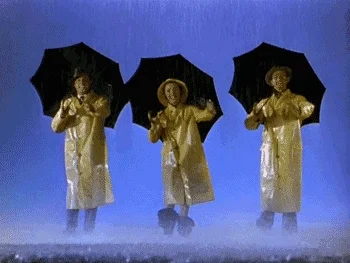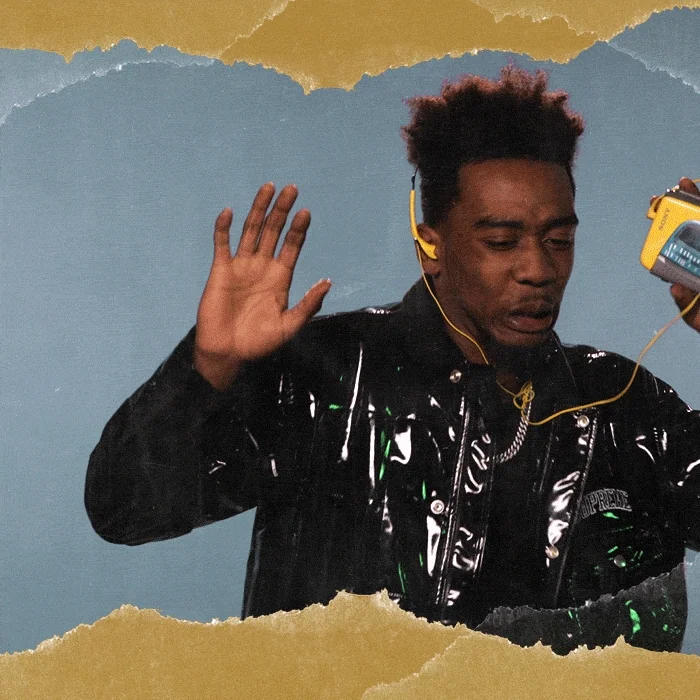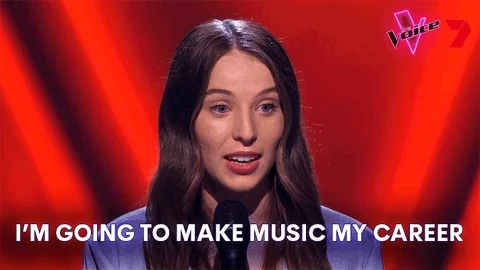Dreaming of a career in music? You’re in good company! Whether you’re a star on stage, a shower singer, or somewhere in the middle, the music industry has a spot for just about everyone.

The reality? The music industry isn’t just about being in the spotlight. It takes a whole crew — from artist managers to sound engineers, tour planners, and even data whizzes to keep track of streaming trends.

You can find many exciting jobs in the music industry, not all involving performing. As technology changes and audience tastes evolve, some jobs have become more popular because they meet important needs. These roles include creating great sound, helping artists grow, and using digital tools to reach fans.
From production, to marketing, to teaching, there’s something for everyone in the ever-changing music world. So, whether you’re set on making music or just love the industry vibe, there’s a way to turn your passion into a paycheck.
1. Music Publicist
Ever discovered an emerging artist whose music you can’t stop sharing? For music publicists, that excitement is just part of the job!
 Photo by NordWood Themes on Unsplash
Photo by NordWood Themes on UnsplashWhat is a music publicist?
A music publicist helps musicians and bands get media attention by promoting albums, concerts, and events. They work with journalists, influencers, and social media to build an artist’s public image and ensure a strong industry presence.
What does a music publicist do?
Media relations: Connect with journalists and media outlets to secure interviews, features, and reviews — keeping the buzz alive!
Show & tour promotion: Ensure gigs, tours, and album launches get the media attention they deserve. No empty seats on their watch!
Social media & brand management: Help artists stay relevant by crafting engaging social media content and keeping their brand consistent — because one bad tweet can haunt you forever!
Crisis management: Put out media fires, smooth over bad press, and keep reputations intact.
Creating buzz: A great publicist knows how to spin a story that grabs attention and gets people excited about the artist’s latest project by writing catchy press releases, artist bios, and promo content.
Quiz
Which of the following is a key responsibility of a music publicist? Select all that apply:
2. Music Producer
In the music industry, many roles contribute to the final product we hear on the radio, streaming platforms, or at live shows. One of the most important roles is the music producer.

But what does a music producer do?
Working behind the scenes, the music producer takes on many roles, "from a sound engineer to creative director."
A producer oversees the entire process, from selecting songs to mixing the final track, bringing both vision and technical skills to shape the song’s sound and story. They guide artists, making key decisions on instruments, tempo, and arrangement, all to ensure the final track truly connects with the audience.

Does working in a studio feel like a dream but seem out of reach?
The good news is that music producers have adapted to the digital age, and with the evolution of technology, recording studio-quality music now requires less equipment that is smaller and more affordable.
Watch this video so see what can be achieved with basic equipment:
Music producers have evolved!
The digital age has changed the music industry, affecting how music is created, produced, and shared. Digital audio workstations (DAWs) have replaced old-fashioned recording methods, giving producers and musicians powerful tools to record, edit, and change sound.
This change has made music production more accessible to new producers and artists.

Ready to jump in and gain some skills?
Great producers also need knowledge of engineering and mixing.
Check the credits of your favorite albums to find out who produced and engineered them, and explore their other work and styles.
Explore production techniques and tutorials.
Learn some music producer lingo.
3. Audio Engineer
Music production is a huge process and one important part of that is audio engineering.
 Photo by Jason Rosewell on Unsplash
Photo by Jason Rosewell on UnsplashAudio engineers work with artists and producers to record and enhance the quality of their sound. Their work isn’t just about music — they can also work on other audio projects like audiobooks and podcasts. Because of this, the demand for audio engineers is expected to grow quickly in the coming years.
Where to start your learning journey?
You can choose to pursue a diploma or degree in sound and audio engineering to enter this field. Having a background in physics and math will give you an extra edge, as sound engineering courses involve a lot of calculations.
Quiz
What is one of the best ways for an audio engineer to gain experience? Select all that apply:
4. Entertainment Insurance Agent
An insurance agent is a professional who ensures people are covered against serious illnesses or unexpected accidents. In the music industry, they provide coverage for musicians, studios, and equipment, protecting against risks like equipment damage, theft, or event cancellations, personal accidents, as well as travel insurance.
Being an insurance agent is tough but rewarding, helping people guard against life’s curveballs — just make sure your skills are sharper than the fine print!
These are essential skills for succeeding as an insurance agent:
Clear communication: The ability to explain complex ideas and really listen to others.
Building connections: A knack for creating genuine relationships and earning trust.
In-depth knowledge: Staying curious and informed about your industry and the products you offer.
Critical thinking: Using your problem-solving skills to assess risks and find the best solutions.
Sales & networking: Being confident in promoting your services and connecting with potential clients.
Flexibility & persistence: Embracing change with an open mind and staying resilient through challenges.

How to become a music insurance agent:
Complete a general insurance essentials program.
Pass the required licensing exams.
Apply for jobs as an insurance agent.
Obtain your insurance agent license through an employer or sponsor.
5. Album Cover Designer
Have you ever wondered who creates those eye-catching album covers?
 Photo by Jazmin Quaynor on Unsplash
Photo by Jazmin Quaynor on UnsplashAn album cover designer is a graphic artist who crafts the artwork for music albums. They capture the themes and emotions of the music, translating them into visuals that reflect the artist's style. While this job isn’t exclusively about music, a genuine passion for it is key to effectively representing various musical genres.

So, what does it take to be an album cover designer?
Many have a degree or professional experience in graphic design — because you can't just throw paint on a canvas and call it art! You’ll also need to be a whiz with design software like Adobe Photoshop and Illustrator. A good dose of creativity and vision is essential for turning musical vibes into eye-catching visuals.
And don’t forget communication skills — being able to present your ideas to artists and record labels is key, especially if you want them to buy into your artistic genius!
Take Action

Now that you’ve explored different in-demand jobs in the music industry, it’s time to take the first steps toward your music career!
Here’s a checklist to help you get started:
Your feedback matters to us.
This Byte helped me better understand the topic.
